Studying languages & reading books. ♡ Spa, Eng ; Ita, Jpn ♡ INFJ.
Don't wanna be here? Send us removal request.
Text
“Your voice is more moving than thunder, your eyes more overwhelming than lightning.”
— Leonora Carrington, from The Complete Stories of Leonora Carrington; “The Sisters”
463 notes
·
View notes
Text
Giornali Italiani 📰

Quotidiani:
Il corriere della sera
Repubblica
Il sole 24 ore
Quotidiano
Gazzetta dello sport
La stampa
Il messaggero
Il Resto del Carlino
Corriere dello sport
Il giornale
Avvenire
La nazione
Tutto sport
Libero quotidiano
Italia oggi
Il gazettino
Il fatto quotidiano

Riviste di moda:
Cosmopolitan
Donna Moderna
Elle
Glamour
Grazia
Marie Claire
Vanity Fair
Al Femminile
Pour femme

Ricette:
La cucina Italiana
Cucinare
Cucchiaio d'argento
Sale Pepe
Butta la pasta
Cucinare meglio
Cucinare facile
Cucina naturale
Mangiare bene
Gambero rosso
Slow food
Cook around
Misya
Cucina e vini
Gola Gioconda
Wine news

Arredamento:
Casabella
Abitare
Interni
AD
Elle decor

Psicologia:
Il minotauro
Il vaso di Pandora
Mind
State of mind

Musica:
Rolling Stone
Il mucchio selvaggio
Rockol
Rock it
Billboard
Giornale della musica
Musica jazz
Jazz it
Classic voice
Fucinemute

Arte:
Arte
Arte dossier
Rai Cultura - Arte
Patrimonio dei beni culturali
La biennale di Venezia
Exibart

Cinema:
Ciak
Best Movie
Cinematografo
Movieplayer
Coming soon
Film.it

Informatica:
PC professionale
Hardware Upgrade
Mytech
Focus digital life
01net
Punto informatico
Applicando
Computer world Italia
140 notes
·
View notes
Photo

So, @historyandlanguages and I are helping each other out with our respective target languages, and I was asked to translate this list of common words useful for beginners into Italian. I translated them following the list’s order, so if you want to know what they mean just confront them with the original post linked above! For some adjectives and pronouns I’ve also written the changes that must be made for the feminine form, but I am lazy so I didn’t do it for all of them, sorry (anyway most of the time you just have to change the final “o” with an “a”). Of course, if there’s anything that’s unclear feel free to message me, I’ll be glad to help if I can :)
EXPRESSIONS OF POLITENESS (about 50 expressions)
‘Yes’ and ‘no’: sì, no, assolutamente (sì) [but I honestly think “certamente” is more used], assolutamente no, esatto.
Question words: quando? dove? come? quanto? quanti? perché? (che) cosa? chi? quale? di chi?
Apologizing: scusa (or, if formal, “scusi”), scusa (if plural, “scusate”) se interrompo/scusa (same thing as before) per l’interruzione, insomma, temo di sì, temo di no.
Meeting and parting: buongiorno, buon pomeriggio, buonasera, ciao, ciao (“arrivederci” is more formal), cin cin/(alla) salute, a dopo, piacere (di conoscerti), è stato un piacere (conoscerti).
Interjections: per favore, grazie, figurati/di niente, scusa, sarà fatto, sono d’accordo, congratulazioni, grazie al cielo/grazie a Dio, sciocchezze.
NOUNS (about 120 words)
Time: mattina, pomeriggio, sera, notte; domenica, lunedì, martedì, mercoledì, giovedì, venerdì, sabato; primavera, estate, autunno, inverno; tempo, occasione, minuto, mezz’ora, ora, giorno, settimana, mese, anno.
People: famiglia, parente, madre, padre, figlio, figlia, sorella, fratello, marito, moglie; collega, amico/a, fidanzato, fidanzata; persone/gente, persona, essere umano, uomo, donna, signora, signore, ragazzo, ragazza, bambino/a.
Objects: indirizzo, borsa/zaino, libro, macchina, vestiti, chiave, lettera, luce, denaro/soldi, nome, giornale, penna, matita, immagine (image)/foto (photo), valigia, cosa, biglietto.
Places: posto, mondo, paese, città, via, strada, scuola, negozio, casa, appartamento, stanza, terreno.
Abstract: incidente, inizio, cambiamento, colore, danno, divertimento, metà, aiuto, battuta, viaggio, lingua, inglese, italiano (this is the language in our case), lettera, vita, amore, errore, novità/notizia, pagina, dolore, parte, domanda, ragione, tipo, sorpresa, modo, tempo, lavoro.
Other: mano, piede, testa, occhio, bocca, voce; la sinistra, la destra; la cima, il fondo, il lato; aria, acqua, sole, pane, cibo, carta, rumore.
PREPOSITIONS (about 40 words)
General: di, a, a (sometimes “in”), per, da, in, su. [Generally speaking, the basic Italian prepositions taught in primary school are di, a, da, in, con, su, per, tra, fra]
Logical: su/di/riguardo a, secondo, tranne/eccetto, come, contro, con, senza, da, nonostante, invece di.
Space: dentro, fuori da, fuori, verso, lontano da, dietro, davanti a, accanto, vicino a, tra, sopra, sopra di/in cima a, sotto/al di sotto di, sotto, sotto/al di sotto di, vicino a, molto lontano da, attraverso.
Time: dopo, fa, prima, durante, da/da quando, fino a/finché/fin quando.
DETERMINERS (about 80 words)
Articles and numbers: un/a, lo/la; nos. 0–20 (zero, uno, due, tre, quattro, cinque, sei, sette, otto, nove, dieci, undici, dodici, tredici, quattordici, quindici, sedici, diciassette, diciotto, diciannove, venti); nos. 30–100 (just decimals here: trenta, quaranta, cinquanta, sessanta, settanta, ottanta, novanta, cento); nos. 200–1000 (just the multiples of 100: duecento, trecento, quattrocento, cinquecento, seicento, settecento, ottocento, novecento, mille); ultimo/a, prossimo/a, primo/a, secondo, terzo, quarto, quinto, sesto, settimo, ottavo, nono, decimo, undicesimo, dodicesimo.
Demonstrative: questo/a, quello/a.
Possessive: mio/a, tuo/a (vostro/a if plural), suo/a, suo/a (in Italian the distinction is based on the gender of the possessed thing rather than that of the possessor), nostro/a, loro.
Quantifiers: tutto, un po’ (di), niente/ nessuno/a, qualsiasi, tanti/e, molto, (di) più, (di) meno, qualcuno/alcuni, vari, intero, un po’ di, tanto/a.
Comparators: entrambi, nessuno dei due, ognuno/ciascuno, ciascuno/tutti, altro, un altro, stesso, diverso, così.
ADJECTIVES (about 80 words)
Color: nero, blu, verde, rosso, bianco, giallo.
Evaluative: cattivo, buono, terribile; importante, urgente, necessario; possibile, impossibile; giusto, sbagliato, vero.
General: grande, piccolo, piccolo, pesante; alto, basso; caldo, freddo, tiepido/caldo; facile, difficile; economico, caro/costoso; pulito, sporco; bello, divertente, curioso, solito, comune, carino/bello, carino/bello/grazioso, meraviglioso; noioso, interessante, pericoloso, sicuro; basso, alto, lungo; nuovo, vecchio; calmo, chiaro, asciutto; veloce, lento; finito, libero, pieno, luminoso, aperto, silenzioso, pronto, forte.
Personal: spaventato, solo, arrabbiato, certo/sicuro, allegro, morto, famoso, lieto/felice, felice/contento, malato, buono, sposato, soddisfatto/compiaciuto, dispiaciuto, stupido, sorpreso, stanco, bene/in salute (not really adjectives but that’s the translation), preoccupato, giovane.
VERBS (about 100 words)
arrivare, chiedere, essere, essere capace di, diventare, iniziare/cominciare, credere, prendere in prestito, portare, comprare, potere, cambiare, controllare, raccogliere, arrivare, continuare, piangere, fare, far cadere, mangiare, cadere, sentire, trovare, finire, dimenticare, dare, stare per/avere intenzione di, avere, dovere, sentire, aiutare, stringere/tenere, sperare, farsi male, fare male/ferire (qualcuno), tenere/conservare, sapere, ridere, imparare, lasciare/partire, prestare, permettere, stendersi, piacere, ascoltare, vivere, vivere/abitare, guardare, cercare, perdere, amare, fare, essere autorizzati a, potere, intendere, incontrare, dovere, avere bisogno di, ottenere, aprire, dovere, pagare, giocare (suonare if playing an instrument), mettere, leggere, ricordare, dire, vedere, vendere, mandare/inviare, dovere (used in the conditional form), mostrare, chiudere, cantare, dormire, parlare, stare in piedi, restare, fermare, suggerire, prendere, parlare, insegnare, pensare, viaggiare, provare, capire, usare, essere abituati a (to be used to something), aspettare, camminare, volere, guardare, there’s not really a verb to express future in Italian you have to conjugate them, funzionare, lavorare, preoccuparsi, again I don’t think would is translatable, scrivere.
PRONOUNS (about 40 words)
Personal: Io, tu (voi if plural), lui (the correct form would be egli but no one uses it anymore), lei (same thing as egli, but this time it would be ella; hasn’t been used in a pretty long time), we don’t have neuter forms, noi, loro, uno/a; io stesso (I’m just gonna put the subject form of these, object is different), tu stesso, lui stesso, lei stessa, no neuter, noi stessi, voi stessi, loro stessi.
Possessive: il mio/la mia, il tuo/la tua (il vostro/la vostra if plural), il suo/la sua (depends on the object), il suo/la sua (same), no gender neutral, il nostro/la nostra, il loro/la loro.
Demonstrative: questo/a, quello/a.
Universal: tutti/ciascuno, tutti, ogni cosa/tutto, ognuno, entrambi, tutto (tutti if plural), uno, un altro.
Indefinite: qualcuno, qualcuno, qualcosa, un po’ (di), pochi, un po’ (di), più, meno; chiunque, chiunque, qualsiasi cosa/qualunque cosa, qualsiasi, qualunque, molto, molti.
Negative: nessuno, nessuno, niente, nessuno/niente/nulla, nessuno dei due.
ADVERBS (about 60 words)
Place: qui/qua, lì/là, al di sopra, oltre/al di sopra, al di sotto, davanti, dietro, vicino, molto lontano, dentro/all’interno, fuori/all’esterno, a destra, a sinistra, da qualche parte, da qualsiasi parte/ovunque, da tutte le parti/ovunque, da nessuna parte, a casa, (al piano) di sopra, (al piano) di sotto.
Time: adesso/ora, presto, immediatamente, rapidamente/in fretta, finalmente, di nuovo, una volta, per molto (tempo), oggi, in generale, a volte, sempre, spesso, prima, dopo, presto (or in anticipo if you get somewhere early), tardi (or in ritardo if you get somewhere late), mai, non ancora, ancora, già, allora, poi, ieri, domani, stasera/stanotte.
Quantifiers: un po’, più o meno/all’incirca/circa, quasi, almeno, completamente, molto, abbastanza, esattamente, soltanto, non, troppo, di più, di meno.
Manner: anche, specialmente, gradualmente/a poco a poco, certo/certamente, soltanto/solo, altrimenti, forse, probabilmente, piuttosto/alquanto, così/quindi/allora, quindi, anche, sfortunatamente, molto, bene.
CONJUNCTIONS (about 30 words)
Coordinating: e, ma, o; tanto/come (if something is as good as something else)/mentre (if something happens as something else’s going on), di/che, come.
Time & Place: quando, mentre, prima, dopo, da/da quando, finché; dove.
Manner & Logic: come, perché, perché (word’s the same for answers and questions in Italian), anche se/nonostante, se; (che) cosa, chi, chi (it’s the same for subject and object), di chi, quale, che/di (I think that I’ll read a book – credo che leggerò un libro).
1K notes
·
View notes
Note
Hey, how do you learn Italian? what textbooks and apps do you use? Can you give any tips for someone who is just starting out? Thanks in advance?
Hi!! Thank you for your question.
Here is a rough plan I made when I started this blog, which is July 2017. It contains a list of resources I was using at the time. I don’t have access to my Schaum’s vocabulary book at the moment, but I’ll be resuming it when I get home. I would definitely recommend it if you’re an intermediate learner like me.
Other resources I’ve used consistently over the past few months are:
this website for free ebooks
this website for free audiobooks
raiplay for series and films (I also watched Suburra on Netflix, it’s brilliant and you should go watch it right now)
Eduopen.org and federica.eu are two websites that contain MOOCs in Italian, if you’re into that
You could also consider getting the raiplay radio app on your phone to listen to the radio, podcasts, and audiobooks. Note that not all of their content is available outside Italy.
My routine is now doing a MOOC class (making notes and looking up new vocabulary) in the evening, or going on tandem and chatting to people, because I really have to focus on university studies. (I 100% recommend getting tandem on your phone. It’s free and really fun)
Before that, I used to read a lot of articles on La Repubblica - just pick a section that interests you. I liked reading outloud to practice speaking, and it also made me focus on the text more. At the end you could make a list of words you don’t know. I also used to watch Cucine da Incubo (the Italian version of Kitchen Nightmares) and the dubbed version of The Nanny, there are lots of other fun programmes available on youtube so just look for something you find interesting. That way you won’t feel bad about procrastinating.. because you’ll be doing it in Italian!
Here are some other useful posts with resources (links included)
radio stations
podcasts
movies and series
a masterlist of italian resources
My tips for someone who is just starting out would be:
Do something every day. Or every other day, if you have little time. This is a lot better than just doing a lot on one day and then doing nothing for the next week or two, or three… your brain won’t retain new information if you don’t practice
Make it fun and varied. I don’t use apps like memrise, duolingo, etc for any of my target languages because I find them very boring and repetitive. Find a routine that works for you.
If you are a complete beginner, take your time to understand the grammar. Verb drills, gender agreement, articles, and the like. Find a grammar book you like and stick to it. You could look up exercises online to complement it.
Again, if you’re a complete beginner, start by listening to Disney songs! Look up the lyrics, print them out or write them down if you like, highlight new words, try to translate the lyrics line by line, and/or learn the songs by heart. When you’re a bit more confident in the language, find artists in genres you like and listen to them, and do the same. I listen to a lot of rap music, for example. I look up the lyrics on rapgenius and try to follow them and understand what they mean.
I know I’ve said this before, but go on tandem. Try to have a conversation, even a very simple one. Ask your language partner to correct you if you make a mistake.
Good luck!!! If anyone else has tips or resources for beginners, it would be lovely if you added them to this post!

813 notes
·
View notes
Text
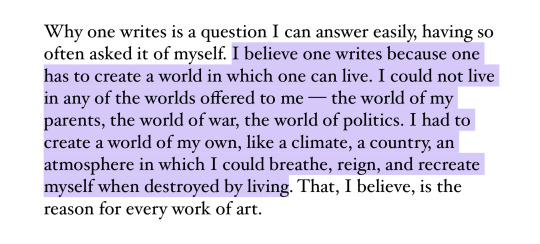

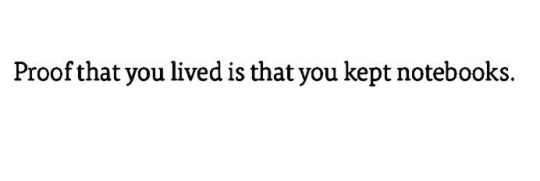

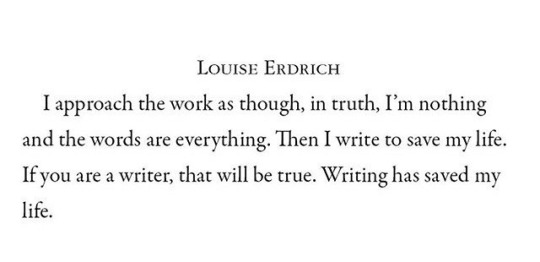
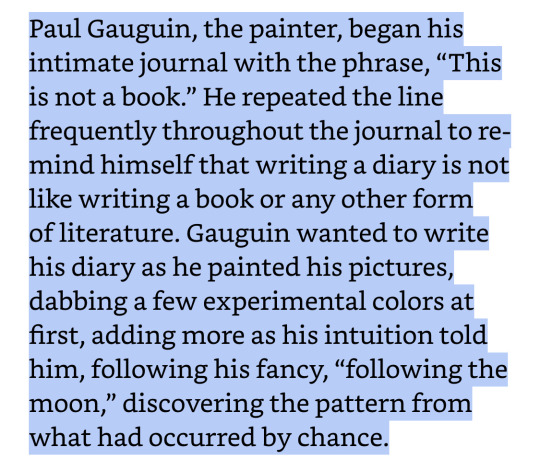


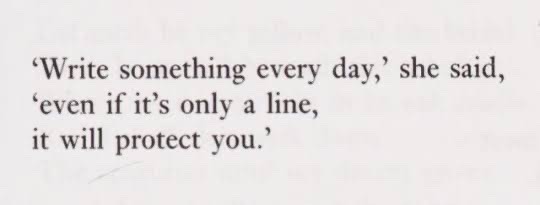

—reasons to keep a diary/written record of existence.
credits: 1. anais nin; 2. sophocles; 3. fanny howe; 4. @pigmenting ; 5. louise erdrich; 6. tristine rainer; 7. clarice lispector; 8. sei shonagon; 9. elaine feinstein; 10. susan goldsmith wooldridge.
15K notes
·
View notes
Text
I was looking for language practice partners but I only found LOTS of boys flirting. Disappointed.
5 notes
·
View notes
Note
Ciao! I just found your blog and I really enjoy it! I was wondering if you had any recs for Italian podcasts/youtube/something of that nature? I’m (supposedly) going study in Italy in a year. While I’ve taken a lot of classes and my writing/reading is pretty good, I’m still having trouble comprehending native speakers so I’d love to watch/listen to more Italian content! Grazie mille 💗
Ciao e grazie a te!! 💗💗
I can only recommend some podcasts, I don’t know many youtubers (maybe someone else will answer in the comments).
As for the podcasts:
Morgana, one of the most known in Italy, talks about the lives of “unconventional” women in history
Copertina talks about books
Alessandro Barbero, historian, talks about history, especially the Middle Ages
Blu notte, coming from the tv show with the same name, tells about the mysteries in the italian history
Ad alta voce, it’s not really a podcast but more of a collection of audiobooks, really well done (and useful to practice Italian because you can compare what you hear with the text of the book)
Anticorpi, a podcast about feminism and current events
Mitologia, about mythology
Risciò, talks about China, its history and society
Solferino 28, talks about important events and recurrences in Italian history
If you want to watch something too, you can check Raiplay, where you can watch a lot of programs aired and produced by Rai (the national television) for free, you just need to register to the website. There are also tons of documentaries and archives of the programs since the birth of Rai (you can also find the program Blu Notte that I mentioned above, if you want to watch it instead of just listening to it, I think they’re basically identical).
Here are some recommendations on what to watch (not all are available on Raiplay): 1 - 2 - 3
I hope this was helpful and I really wish you luck for when you’ll come to Italy!
128 notes
·
View notes
Text
How I got a B2 in Italian in 1.5 years
Anon requested me to share my secrets with you and I will try my best to do so. I don’t use all of these resources very regularly, but I think they could all help you with your studies. Some of these resources will be in Dutch, because that happens to be my native language. I included them because there might be Dutch speakers reading this and some resources might also exist in other languages.
Dictionaries
Invest in a good dictionary!
Online dictionaries can prove very useful because they’re faster, but books are often more accurate
I use both, but am yet to find a good online Dutch-Italian dictionary
(For native Dutch speakers: I highly recommend Van Dale)
Duolingo
Vocabulary and grammar (app/website)
Took me about 6 months to finish
Use the desktop version: it’s where you can find the grammar
Take notes of the grammar!!
It’s not always 100% accurate but the basics are explained very well
Write down the vocabulary
I made a word document that went article + Dutch word/article + Italian word/article + Italian plural
(shoot me a message if you want it!)
I finished the tree before starting books, because I don’t like the idea of working with two (or more) different “full” resources at the same time
With “full” I mean that they’re not additional information you look up so you can understand a concept better, but actual resources that you’re going to study as a whole
Tinycards
Flashcards (app/website)
This app is also from Duolingo: for Italian, they’ve got flashcards for the Duolingo tree, so you don’t have to make them anymore! Sadly I only discovered this months after I finished the Duolingo tree so it wasn’t useful for me anymore, but honestly I think that’s a blessing if you want to repeat vocabulary!
You can also make your own flashcards: you can keep them private or not and they’ve got audio.
Memrise
Vocabulary (app/website)
I heard a lot about it, saying it was good for vocabulary so I thought I should give it a try.
I didn’t like it, I don’t really know why: I think it’s a good app, it just didn’t work for me.
Quizlet
Flashcards (app/website)
Make your own flashcards or use decks made by others.
There are also other things like diagrams but I haven’t tried that so I wouldn’t know how it works
Tandem
Conversation practice (app)
It’s an app to chat with natives of the language you’re learning
Possibility to send voice messages, there’s an in-app dictionary, you can send pictures, you can video chat or call and most importantly: if there might be any problems, you can report and block.
I have not encountered a single person who is not there for learning, a problem that apparently exists on other apps.
You can also pay to get classes by teachers on there, and they’ve also got Tandem Pro without adds and probably some other advantages, but the free version is great as well
Beelinguapp
(Audio) books (app)
It’s mostly short stories and fairy tales
Some are paying, some not
You can turn on the audio
La Repubblica
Newspaper (app/website)
I turned on notifications for this one, so I can see what the important stuff is in Italy right now
I don’t often read whole articles, but I should because it’s great reading practice + you learn about politics, culture…
Newspapers often use a more difficult language, so I recommend this to people who are intermediate
Assimil Italian
Vocabulary + grammar (book)
I started this after finishing the Duolingo tree and then it’s not useful, because it starts from scratch.
Good alternative if you don’t like using apps like Duolingo
It has audio’s
(Got it from @lovelybluepanda)
Colloquial Italian
Vocabulary + grammar (book + CD)
I only got the book and not the CD (I got the book from lovelybluepanda‘s account, idk if she’s even got the CD?)
I liked it, although too easy because I had already finished Duolingo.
Very good grammar explanations
Modern Italian Grammar
Grammar (book)
Just plain grammar, but great explanations
I started taking notes from it, but rn I’m redoing it because 1) I should revise my grammar 2) the first notes I made were awful 3) I didn’t even get to 1/3 of the book
It’s a lot, but I love it
It has a workbook! Great exercises!
I also got this one from lovelybluepanda
Snelcursus Italiaans: grammatica
Grammar (book)
As you might have guessed, it’s in Dutch. But because it’s a translation from German (Durchstarten in Italienisch-Grammatikk) I thought there might be other translations out there :)
I use it to look up stuff, not so much to actually study from
Qui Italia più: corso di lingua italiana per stranieri: livello medio (quaderno di esercitazioni pratiche)
Exercises (book)
This one is completely in Italian
Varied exercises
Nuovo progetto italiano: quaderno degli esercizi
Grammar, vocabulary, exercises (book + CD’s)
Got this one at my language school in Rome and I quite like it (I got the B2 version)
Lots of different exercises, listening practice, reading, conjugations…
Diary
I’m not the type of person who keeps a diary but I’m trying to keep one for Italian and Norwegian. Just talking a bit about your daily/weekly activities, feelings… can make you feel more familiar with the language
If you’ve got a bullet journal, maybe you can do it in Italian?
Visit Italy
Easier said than done? You’re right about that.
I’ve recently spent 3 weeks in Rome with a language school while staying in a host family and honestly I learned so much. I don’t speak Italian with anyone here and speaking Italian all day long improved my level so much.
So if you have the possibility: plan a trip to Italy, talk with natives (in my experience: they’ll be more than happy to chat with you).
If people start to talk to you in English, don’t be scared to switch to Italian. Most of the time they’re very excited you speak the language!
Other tips
Switch your phone/tablet/computer/… language to Italian
Learn the alphabet!!
A thing I was too lazy to do so after 1.5 years I still don’t know it and believe me, that can be annoying
Look for other resources! Especially in your native language!
Do not solely rely on this one post please
Follow as many Italian langblrs as you can: search for Italian vocab lists/grammar posts/… and follow the people who made them, there are also posts out there with lists of Italian langblrs (I’ll make a list with the ones I follow below)
Translate: I like to translate parts of wikipedia articles, Dutch to Italian or Italian to Dutch
Make a topic jar: lovelybluepanda has got a post with topic ideas
Listen to music, podcasts…
Watch Italian tv! Italian tv is unbelievably shitty but I like to watch quizzes in particular because if you don’t understand one part, that’s no problem: the next part will be about something different.
Read books! You can start with children’s books, from B1 books like the first Harry Potter books are doable, What I also find a good idea is reading a book in Italian that you’ve already read several times in your native language. That way you already know the story line and it’s not a problem if a certain part is too difficult for you
Italian langblrs/tumblrs
@langsandlit @italianformygirlfriend @italianwithilaria @organizedstudy @lingolden @dreamingindifferentlanguages @welcometoitalia @foxlanguages @songiprilingvoj @uranusstudies @languageswithceles @gollyplot @universallanguagelearner @livinglanguages @baronessoflanguages @a-study-in-shakespeare @fritalianblr @italianlangblr @sayitaliano @sciogli-lingua @languagestudyblr @suplanguages @learninghowtopasta @polyglottraveler
2K notes
·
View notes
Text
Positive vibes - Vocabs ITA
Puoi farcela! - You can do it!
Forza / Dai / Coraggio! - Come on!
Sono orgoglioso/a di te - I’m proud of you.
Continua così - Keep up the good work.
Non arrenderti! - Don’t give up!
Non arrenderti mai! - Never give up!
Credi in te stesso/a - Belive in yourself.
Io credo in te. - I believe in you.
Non è mai troppo tardi - It’s never too late.
Ben fatto! - Well done!
Andrà tutto bene. - Everything is going to be alright.
Le sconfitte ti rendono più forte - Defeats make you stronger.
Ciò che non (ti) uccide, (ti) fortifica - What doesn’t kill you makes you stronger
Impara dai tuoi errori / Dagli errori si impara. / Sbagliando si impara - You learn from mistakes.
Non buttarti giù / Non abbatterti. - Don’t get discouraged.
Ogni giorno è una nuova opportunità. - Everyday is a second chance.
Non puoi avere pensieri negativi ed aspettarti cose positive. - You can’t think negatively and expect positives.
Solo perché non succede adesso, non vuol dire che non succederà mai. - Just because it does not happen now does not mean it will never happen.
Sei forte! - You’re strong!
Complimenti! - Congrats!
(Vibrazioni positive) Energia positiva - positive vibes (positive energy)
insp.
861 notes
·
View notes
Text
"BELLO": a peculiar adjective [ITALIAN]
The italian adjective “bello” is very peculiar for a couple of reasons. The first is semantic: this adjective holds in itself a very wide range of meanings. Just to name a few: - pretty (“that girl is very pretty” = “quella ragazza è molto bella”) - handsome (“that man is handsome” = “quell'uomo è bello”) - beautiful (“this landscape is beautiful” = “questo panorama è bello/bellissimo”) - nice (exclamation only: “no school today… nice!” = “niente scuola oggi… bello!”) - good (“that’s a good song” = “è una bella canzone”) - fun (“i took a trip to New York, it was fun!” = “ho fatto una gita a New York, è stato bello!”). And many more (cute, big, etc…) Basically, if you need a positive adjective to describe something, but you can’t come up with the proper one, just go with “bello”. That’ll do. The second reason is grammatical. This adjective has more than the usual 4 forms (masculine singular, masculine plural, feminine singular, feminine plural). Let me explain: there aren’t third genders or dual forms, but this adjective’s form changes depending on the word that follows. - When it’s used as a pronoun, so it isn’t linked to a noun, it’s simply “bello”. (”Quel cane è bello” - “That dog is cute”) - When it’s followed by a masculine singular noun beginning with “s+consonant”, it’s “bello”. (”Mi hanno fatto un bello sconto!” - “I got a big discount!) - When it’s followed by a masculine singular noun beginning with any other consonant (including S followed by vowel), it’s “bel” (”Ho visto un bel film” - “I saw a good movie”) - When it’s followed by a masculine or feminine singular noun beginning with a vowel, it’s “bell’ (”Questo è proprio un bell’aereo” - “This is a really nice plane”) - When it’s followed by a masculine plural noun beginning with s+consonant OR with a vowel, it’s “begli” (”Hai proprio dei begli occhi!” - “You have really pretty eyes!”) - When it’s followed by a masculine plural noun beginning with any other consonant (including S followed by a vowel), it’s “bei” (”Il tuo vicino ha dei bei cani” - “Your neighbour’s dogs are cute”) - When it’s followed by a feminine plural noun beginning with any letter, it’s “belle” (”Abbiamo passate delle belle serate insieme” - “We spent some really fun nights together”) If you have any question, please feel free to ask!
35 notes
·
View notes
Text
What should you be reading to maximize your language learning?
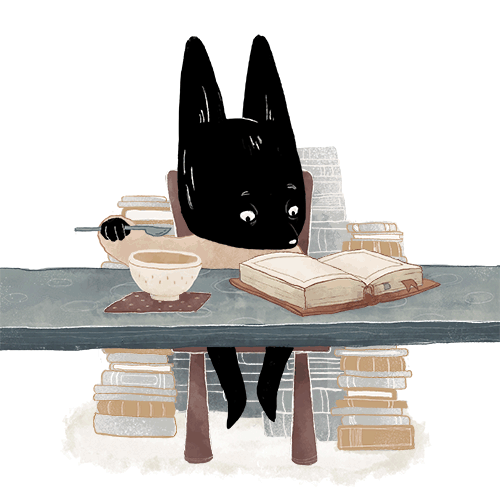
It’s easy to get overwhelmed by the sheer amount of literature we can learn from. Baby books bore you, but you’re not ready for any type of novel, so what’s left?
Here are some tips
For beginner/A1/A2 learners
Watch a YouTube video in your target language, then read the comments
you’ll already have vocabulary from watching the video, most of the comments will probably use that vocab
it’s a short enough text that you won’t get fatigued
the only downside is that sometimes people utilize abbreviations and slang terms, but even these are good to know
Read news headlines and if you find one you understand almost fully, try to read the full article
sometimes the vocabulary used is not common in everyday usage, but it’s a total win for an A1 learner to fully read and mostly understand any text
while vocab is not used everyday, it will give you the ammunition to talk about that particular topic
Watch Netflix in target language with subtitles in the same language
believe it or not, you will learn to read better, especially because you don’t have to understand written description of visuals (usually uses very niche vocab) or emotion
and now you can slow down or speed up
I watched DARK in German before I felt like I could read a book, and I understood 85% of it. This is because I looked up some vocabulary in the first episodes and they continued to use it throughout the show so it really cemented in my head to the point where I don’t even think about it. Now, I had to rewatch some conversations the characters had, but that’s much better for understanding than switching it to English or looking up full phrases and sentences.
For intermediate/B1/B2 learners
read fanfiction
it’s ALWAYS good to read about something you’re interested in so if you like any major movies, books, television, this is the perfect option for you
most people use relatively basic language and you can choose the length
find a comic book or graphic novel
like watching tv, that visual aid really helps with understanding of the plot without all those tricky descriptions
read a book in your target language that you’ve read and loved in your native language
this is by far my favorite way
you don’t have to worry about trying to understanding the bigger picture because you already know what’s happening/what will happen, you really have to discover the meaning of each sentence and then you begin to picture the scene using only your target language
Check out my other post for methods of how to get the most out of reading !
8K notes
·
View notes
Text
From Beginner to Intermediate: an intense plan for advancing in language
Introduction
I've studied Spanish at school for 3 years and now I'm at a low B1 level. I can actually understand pretty well while listening or reading but I can't communicate fluently.
This plan will include vocabulary build up, some grammar revision, a lot of listening, reading and writing. And could be used for the most languages, not only Spanish.
Plan
Every day:
Conjugate one verb in present, past and future tenses
Make a list about 10 - 30 words long
Create flashcards with them and start learning them (I use Quizlet for flashcards)
Revise yesterday's set of flashcards
2-3 times a week:
Read an article or a few pages from a book
Write a few sentences about anything in your target language
Listen to one episode of podcast (at least one)
Once a week or every two weeks:
Watch a movie in your target language, preferably animated movie as the language used there is easier. You can watch with subtitles
Grammar exercises
Translate some short text
Once a month:
Write something longer, like an essay or report, on chosen topic
Additionally:
Talk to yourself, to your friends, to your pets
Text with someone
Look at the transcription while listening to the podcast for second time
Repeat what you hear (in podcast or movie)
Check words you don't know from the listening and reading
Read out loud
Listen to music in your target language - you can even learn the text and sing along
Watch YouTube in your target language
Change your phone language to the one you're learning
Think in you target language!!!
***This is very intense plan for self-learners, you don't have to do all of these things in the given time. Adjust it to your own pace. I'll try to stick to this, if I have enough time.***
10K notes
·
View notes
Text
some things i’ve learned while studying in quarantine
drink more water instead of more coffee.
weekly goals are bullshit. set yourself 3-day goals. you’ll be less laid-back.
don’t just mindlessly stare at words. before you start studying, know your approach to it. have a plan.
summarizing the concept in your own words is the key part of taking notes. don’t just copy things down, convert them into your own way of talking, your own vocabulary, no matter how dumb and unprofessional it sounds.
don’t let the “studyblr aesthetic” fool you. studying doesn’t have to be pretty. summaries and notes can be messy as long as they’re comprehensible. you can always rewrite and reorganize them later. (honestly, you better do. and you better keep them.)
don’t throw away the papers you’ve solved your problems in. staple them to the fucking textbook. you need to see them constantly. cause you’ll need reminders of how far you’ve came, when you’re feeling discouraged.
don’t be an armchair analyst for your issues. if you have an idea then act on it.
remember: the exact point where it becomes difficult, is where your growth begins. take a deep breath, and try to focus on the paragraph in front of you.
get off your high horse and understand that if you’re a zero, you won’t go to 100 in a couple of days. first, you’ll need to reach 30, then from 30 to 60, and then from 60 to 90. nobody is 100 everyday. that happens very rarely.
you need to have fun everyday. you need to have peaceful time every single day. even on exam night. especially on exam night, actually. so make sure you’ve studied enough so you can have some time to yourself.
once you’re on a roll and in need of some challenge to stay on track, start writing down your studying hours. tell yourself you’re not allowed to do less than 80% of what you did yesterday. whatever the hell it was, even just one hour. so if yesterday you really studied for like, say 8 hours, today your goal is to study for at least 6 and a half hours. if you can’t keep up with that, make it 70%, or 60%.
be forgiving of yourself. be kind to yourself. even if you bounced back and lost your streak. start again. as slowly as you did before. take your time. it’s okay, you were there once you can get there again.
41K notes
·
View notes


